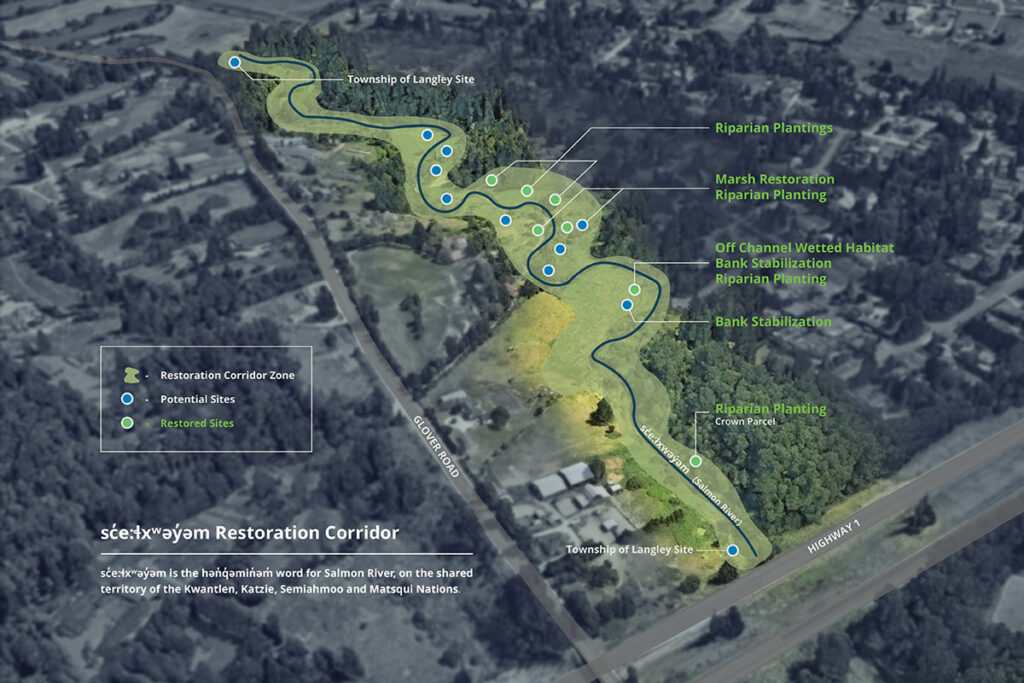Foodlands Projects:
sc̓e:ɬxʷəy̓əm (Salmon River) Corridor
“sc̓e:ɬxʷəy̓əm” is the hən̓q̓əmin̓əm̓ word for the Salmon River. hən̓q̓əmin̓əm̓ is the Downriver dialect of Halkomelem. Translations provided by Knowledge Keepers and language learners from Kwantlen and Katzie Nations.
Rivershed is implementing a Foodlands corridor on the sc̓e:ɬxʷəy̓əm (Salmon River) in Langley, in the shared territory of the Kwantlen, Katzie, Semiahmoo and Matsqui Nations. We are working in collaboration with səýeḿ Qwantlen (the business subsidiary of the Kwantlen First Nation), Langley Environmental Partners Society, Kerr Wood Leidal, Lower Fraser Fisheries Alliance, Kwantlen Land Guardians, and multiple landholders along the river.
At various stages throughout project planning, Rivershed is consulting and working with Kwantlen and Katzie Knowledge Holders to integrate culturally significant plants in the habitat restoration plans, which also focus on the animals and other targeted species that have been harvested and hunted for spiritual, nutritional, and/or medicinal purposes. To uphold the traditional place, plant and animal names, Knowledge Holders are providing translations in local dialects of Halkomelem.
In 2021, work began in the sc̓e:ɬxʷəy̓əm corridor with two parcels located on the floodplain of the river. In an area wrought with invasive Reed Canary Grass, the team replanted 4,642 m2 of the riparian zone with endemic species that will provide abundant instream and overhead cover for salmon and enhance the biodiversity of aquatic, avian, and terrestrial species within the corridor. The project has also created approximately 2,870 m2 of new or restored wetted habitat for overwintering kwóxweth / kʷəxʷəθ (coho salmon).
As of Fall 2022, Foodlands has restored 6 of 12 potential parcels within the sc̓e:ɬxʷəy̓əm corridor. With 12,000 endemic plants already in the ground and nearly 11,000 m2 (1.1 hectares) of restored natural area along the river, Foodlands aims to restore another 1.5 to 2.5 hectares to create a fully restored Foodlands Corridor on the sc̓e:ɬxʷəy̓əm.
Project Goals
Restore species-at-risk habitat on the sc̓e:ɬxʷəy̓əm (Salmon River) through the removal of invasive species, endemic replanting, building bat and owl boxes, creating off channel wetlands and creating a robust riparian buffer.
Cultivate cross-cultural understanding of Indigenous food systems and land management at the direction of səýeḿ Qwantlen and Kwantlen First Nation through the planning, implementation and maintenance of the project site.






















